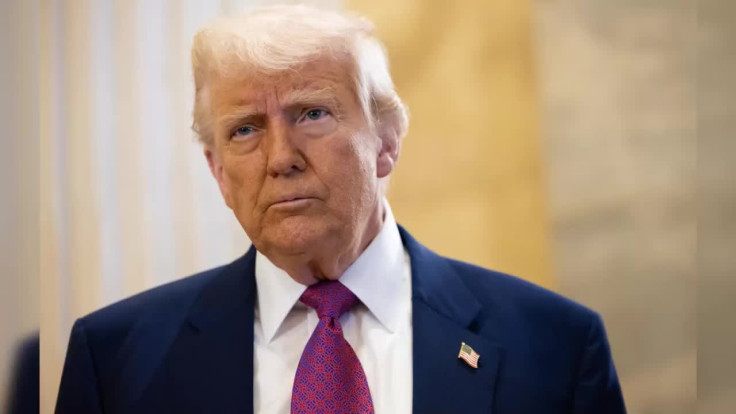
The Supreme Court allowed the Trump administration to strip the legal status of over half a million people who got it during when former President Joe Biden led the White House.
The program, known as humanitarian parole or CHNV, benefited citizens of Cuba, Haiti, Nicaragua and Venezuela, allowing them to temporarily live and work in the U.S. if they passed a security check and had a sponsor who could provide them with housing.
More than 531,000 people had been approved to enter the U.S. and stay for up to two years under the program, with Florida receiving 80% of the arriving migrants, according to the current administration.
Justices Ketanji Brown Jackson and Sonia Sotomayor dissented with the ruling, with Jackson saying the court didn't take into account "the devastating consequences of allowing the government to precipitously upend the lives and livelihoods of nearly half a million noncitizens while their legal claims are pending."
The Department of Homeland Security (DHS) announced the revocation of CHNV recipients' legal status in mid-March. The measure was put in pause after Massachusetts judge Indira Talwani ruled that the administration needed to make individual determinations.
However, Solicitor General D. John Sauer said the judge didn't have the authority to rule on the issue and DHS Secretary Kristi Noem has the authority to do so under the federal Immigration and Nationality Act.
The move was also questioned by several members of South Florida's congressional delegation, who argued that migrants who came to the U.S. legally— including 75,000 who subsequently filed for asylum— shouldn't be punished.
"Let's give them the opportunity to apply for the protections they were promised," Republican U.S. Rep. Maria Elvira Salazar said in a statement. Salazar, who has supported elements of Trump's immigration crackdown, blamed former President Joe Biden for putting Cubans, Haitians, Nicaraguans, and Venezuelans in "legal limbo." But she said Trump should give people affected by the revocation of the program a chance to plead their case to stay. She has also pleaded with Trump to not end Temporary Protected Status for hundreds of thousands of Venezuelans.
The decision comes a day after Immigration and Customs Enforcement underwent a shakeup as the Trump administration seeks to drastically increase law enforcement operations.
Kenneth Genalo, the ICE official leading the branch in charge of arrests and deportations, will leave his post, while Robert Hammer will stop being the head of ICE's Homeland Security Investigations (HSI).
It is unclear who will replace both agents, but the development comes as top Trump adviser Stephen Miller and Homeland Security Secretary Kristi Noem directed ICE to carry out 3,000 arrests per day.
The push reportedly took place during a tense meeting on May 21 the ICE headquarters in Washington, D.C., where Miller told field office directors and agents to significantly raise arrest and deportation figures. According to multiple sources cited by the outlet, Miller's tone left some attendees fearing their jobs could be at risk if they failed to meet the target. A little over a week later, the two officials are set to leave their posts.
© 2025 Latin Times. All rights reserved. Do not reproduce without permission.





